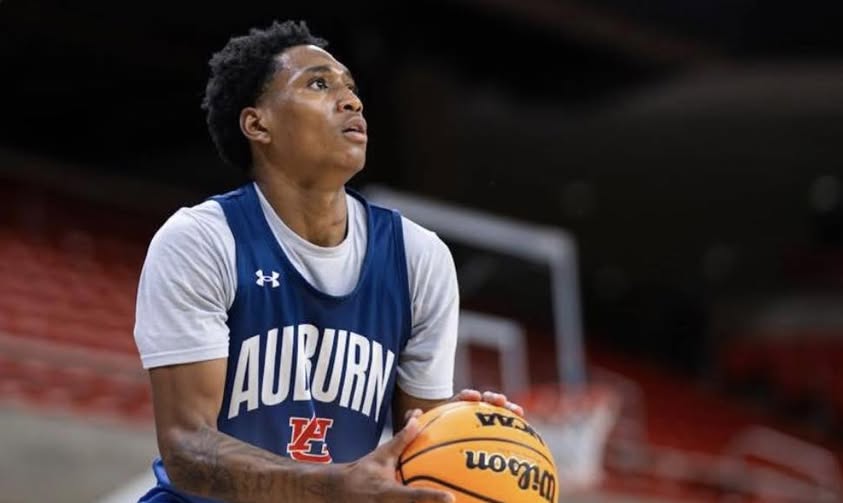In a significant development that has captured the attention of college basketball enthusiasts, Auburn Tigers guard Tahaad Pettiford has reportedly declined a substantial $4.5 million Name, Image, and Likeness (NIL) offer from the University of Georgia. This decision comes on the heels of his $2.1 million NIL signing with Auburn in December 2024, underscoring his commitment to the Tigers. Pettiford’s journey from a highly touted recruit to a pivotal player for Auburn exemplifies the evolving landscape of collegiate athletics and the influence of NIL opportunities.
Tahaad Pettiford, hailing from Jersey City, New Jersey, emerged as one of the most promising point guards in the 2024 recruiting class. Standing 6-foot-1 and weighing 175 pounds, Pettiford’s agility, scoring prowess, and defensive tenacity quickly set him apart. In his freshman year at Auburn, he averaged 11.3 points per game, ranking third on the team. His performance included notable games such as a 21-point outing against Houston and a 20-point game versus Duke, highlighting his consistency and impact on the court.
Pettiford’s contributions were not limited to scoring. In a game against Mississippi State, he recorded 12 points, a career-best four steals, and three assists, demonstrating his all-around game. His performance earned him the Southeastern Conference (SEC) Freshman of the Week honors, reflecting his growing influence within the league.
On January 18, 2025, Pettiford delivered a career-high 24-point performance in a narrow 70-68 victory over Georgia. His shooting efficiency, including a 5-of-7 mark from three-point range, and his defensive efforts were instrumental in securing the win. This game underscored his ability to perform under pressure and solidified his status as a key player for Auburn.
Amidst his on-court success, Pettiford’s value extended beyond basketball. The emergence of NIL opportunities has transformed the collegiate athletic landscape, allowing student-athletes to capitalize on their personal brands. In December 2024, Pettiford signed a $2.1 million NIL deal with Auburn, a testament to his marketability and the university’s recognition of his potential both on and off the court.
The reported $4.5 million NIL offer from Georgia further highlighted Pettiford’s prominence in the NIL arena. Such a substantial offer from a rival institution not only underscored his desirability but also the competitive nature of NIL negotiations. However, Pettiford’s decision to remain with Auburn, turning down the offer, speaks volumes about his loyalty and the strong relationships he has cultivated within the Tigers’ program.
This incident also sheds light on the broader implications of NIL in college sports. While these opportunities provide financial benefits and incentives, they also introduce complexities regarding recruitment, team dynamics, and the ethical considerations of such substantial endorsements. Pettiford’s experience exemplifies the balancing act student-athletes must navigate between financial opportunities and their commitments to their teams and personal values.
For Auburn, retaining Pettiford is a significant win. His presence strengthens the team’s backcourt, offering both leadership and exceptional skill. As the Tigers continue their season, Pettiford’s contributions are expected to be pivotal in their pursuit of conference championships and a deep run in the NCAA tournament.
Tahaad Pettiford’s journey with Auburn is a microcosm of the evolving dynamics of college athletics, where talent, marketability, and personal choices intersect. His decisions, both on the court and regarding NIL opportunities, will undoubtedly influence the discourse on collegiate athlete empowerment and the future of NIL regulations. As the landscape continues to evolve, Pettiford’s story will serve as a reference point for discussions on the balance between collegiate sports traditions and the new era of student-athlete entrepreneurship.



